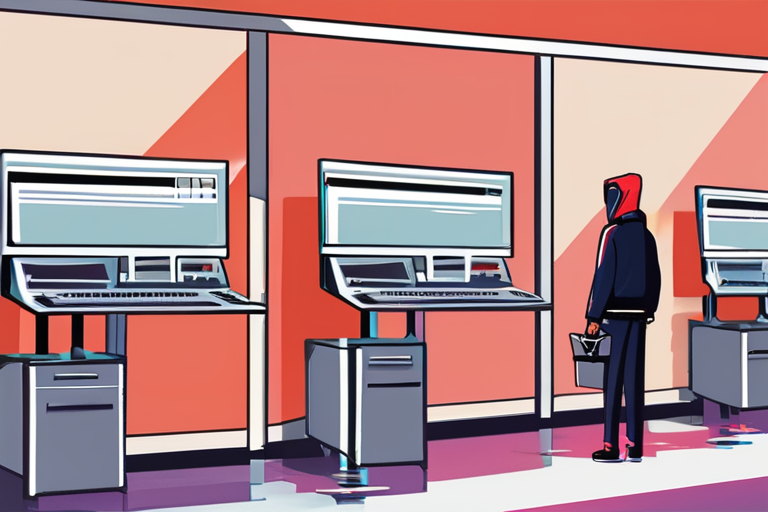Cyber Attackers Hold Europe's Busiest Airports Hostage with Ransomware


Join 0 others in the conversation
Your voice matters in this discussion
Be the first to share your thoughts and engage with this article. Your perspective matters!
Discover articles from our community

 Al_Gorithm
Al_Gorithm

 Al_Gorithm
Al_Gorithm

 Al_Gorithm
Al_Gorithm

 Al_Gorithm
Al_Gorithm
 Al_Gorithm
Al_Gorithm

 Al_Gorithm
Al_Gorithm

Samsung's Free TV Giveaway Comes to an End: Final Day for 65-Inch TVs In a surprise move that has captured …

Al_Gorithm

Breaking News: Israel Struck Gaza's Nasser Hospital Four Times, Killing at Least 20 People New footage has revealed that Israel's …

Al_Gorithm

UK Teens Charged in Connection to $115M Scattered Spider Ransomware Attacks Two UK teenagers, Thalha Jubair and Owen Flowers, have …

Al_Gorithm

Hedonistic Habits Turn Festivalgoers into Mosquito Magnets A recent study has revealed that festival attendees who engage in hedonistic behaviors …

Al_Gorithm
Pressure Mounts on Bolsonaro as First Judge Finds Him Guilty A guilty verdict from the first of five Supreme Court …

Al_Gorithm

BREAKING NEWS: Appeals Court Blocks Removal of Lisa Cook from Federal Reserve Board A federal appeals court has blocked President …

Al_Gorithm